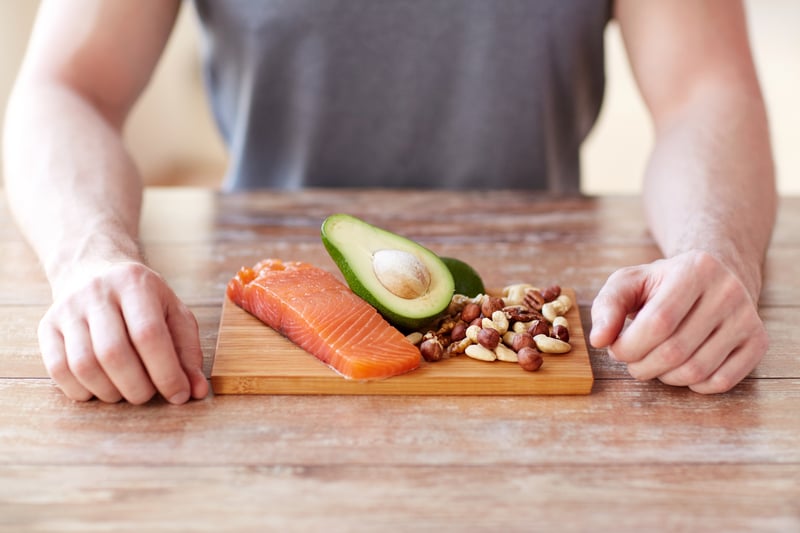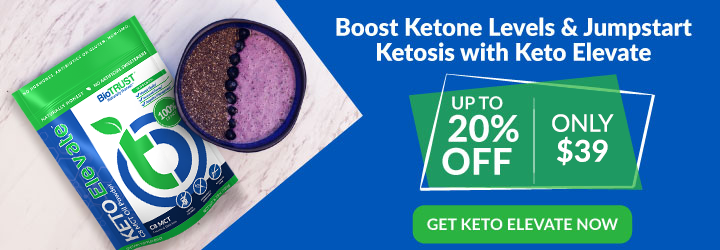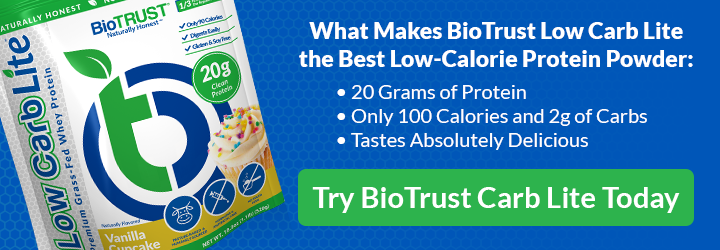What Does Protein Do for Your Body? See 10 Benefits

Carbohydrates, fats, and protein are the three essential macronutrients the body requires to function and maintain health. And while there is debate around how much of these macronutrients we need, one has proven in many ways to outstand the rest—protein. What does protein do for your body? And why is it such a powerful nutrient for greater health and weight loss?
Building Blocks for Every Cell
Protein is considered one of the body’s most essential nutrients because it’s a valuable unit to every cell in the body.
Odds are you can recall from your high school biology class that proteins are made up of amino acids. These amino acids are often coined “building blocks” because together they are able to form or build the various protein structures needed for almost every one of life’s processes. When consuming dietary protein, you are supplying your body with these highly essential organic compounds.
Besides being an integral part of the body, dietary protein has been shown to produce powerful benefits. Protein is a multi-functional tool that can help people of all ages, shapes, and sizes enjoy better health and bodies.
So, what does protein do for your body? Here is a quick list.
What Does Protein Do For Your Body?
1. Reduce Risk for Illness
Immunity is a central topic of focus nowadays. And since antibodies and interferons—which are a part of the immune system—rely on protein to function, consuming adequate amounts of protein may lead to better immune function and even fewer colds. 1
2. Increase Satiety
Many of the benefits seen with high-protein diets can be attributed to the fact that consuming more protein increases satiety. 2 This is because consuming protein increases the production of hormones that help keep you full, meaning those who eat more protein have a more satisfied, full feeling for longer. 3 Additionally, protein decreases levels of the hormone ghrelin, also known as the “hunger hormone.” 4
3. Boost Metabolism
One of the most well-known benefits of consuming a diet high in protein is how it boosts metabolism simply by its own thermogenic effect. 5 This means more energy is required to digest and break down protein. Therefore, you’re using more calories when you’re consuming protein. Further, if you’re using more calories to break down your food, your body is less likely to store the calories from protein as excess body weight. 6
4. Improve Metal Clarity
Consuming more protein is also good for your brain. Protein is essential for getting nutrients to the brain. Similarly, the brain is constantly producing neurotransmitters, so the brain and body can communicate. These neurotransmitters are made up of amino acids—the fundamental components of protein. Consuming a diet higher in protein can increase neurotransmitter production and optimize brain function to help improve mental clarity and reduce brain fog. 7
5. Increase Muscle Mass
Protein is the main component of muscles, making dietary protein an indispensable nutrient for the body. Protein is not only the fundamental element in the formation of skeletal muscle, but it can also help preserve muscle during periods of negative energy balance and help reduce age-related muscle loss. 8,9 In addition, studies have shown that consuming protein contributes to greater increases in muscle mass and strength when paired with exercise. 10
6. Strong Bones
Dietary protein, both animal and plant-based, is an essential nutrient for bone health. Studies indicate that relatively high protein intakes are associated with increased bone mineral mass. This could be because dietary proteins enhance IGF-1, a factor that positively affects skeletal development and bone formation. 11
7. Reduce Cravings
Cravings typically differ from hunger since the body does not need energy. Cravings can be hard to control; however, protein consumption can help prevent them altogether. One found that increasing protein to 25% of calories reduced cravings by 60% and the desire to snack at night by half. 12
8. Lower Blood Pressure
Blood pressure is responsible for delivering blood throughout the body and returning it to the heart. Maintaining healthy blood pressure is very important because the higher your blood pressure is, the higher your chances of having health issues such as heart disease or a stroke. Following a high-protein diet has been linked to decreasing the risk for both of these complications because it can lower blood pressure, cholesterol, and triglycerides. 13,14
9. Healthy Weight Maintenance
Maintaining a healthy weight can be difficult, especially after weight loss. Research has revealed that a modest increase in protein intake is linked with helping with weight maintenance. In one study, increasing protein from 15% to 18% of calories reduced weight regain by 50%. 15 Further, as previously mentioned, higher protein intake leads to higher satiety and balancing of hunger hormones, so you’re less likely to consume calories in the form of carbohydrates and fat, making protein a great option when it comes to managing weight and body composition.
10. Repair Tissue
Since protein is involved in almost every aspect of the body, it makes sense that protein is able to help the body repair itself. For instance, exercise can trigger the breakdown of muscle protein and cause microscope tears in the muscles. Consuming dietary protein after a workout gives your body the amino acids it needs to repair and rebuild these tissues. 16,17 Correspondingly, in the case of traumatic injuries, hypermetabolism is induced, which creates a greater need for protein so the body can heal. 18
How Much Diet Do You Need a Day?
There is no doubt protein is beyond compare. With protein playing so many crucial roles and all its healthful benefits, it is important you are getting enough through your diet. The Academy of Nutrition and Dietetics recommends that the average individual consume 0.8 grams of protein per kilogram or 0.35 grams per pound of body weight per day for general health.
So, for the average 198-pound man, that translates to a minimum of 70 grams of protein per day. For the average 170-pound woman, that means at least 60 grams of protein per day.
For people who exercise regularly, the recommendations are even higher at 0.73 grams per pound of body weight. As an example, a 150-pound person who lifts weights 3 times per week would consume 109 grams of protein per day.
How Do You Get More Protein in Your Diet?
Of course, people consume food—not protein per se. So how can you get more protein into the diet? Here’s one example:
- Breakfast: 3 scrambled eggs with a mixture of vegetables: 22 grams protein (338 calories)
- Lunch: Lentil soup with whole-grain bread (e.g., Ezekiel sprouted): 26 grams protein (440 calories)
- Dinner: 4 ounces of salmon with brown rice and vegetables: 31 grams protein (404 calories)
- Nighttime (or afternoon) snack: 1 cup yogurt with 2 scoops of protein powder topped with berries: 34 grams protein (472 calories)
- Total: 113 grams protein and 1,654 calories
Even though protein is found in many whole foods, one of the easiest ways to get a protein boost is to use a protein supplement. Our top recommended high-quality, high-protein supplement protein is BioTrust Low Carb. BioTrust Low Carb contains 24 grams of pasture-raised, grass-fed protein per serving. Not only that, but it’s soy-free, gluten-free, non-GMO, and made with natural ingredients. Plus, it tastes delicious!
Whether you choose to get your protein from lean meats, eggs, plant-based sources, or a protein supplement, the key is to ensure you’re providing your body with the protein building blocks it needs for optimal functioning.








